The Descent to Soul
Tell a wise person or else keep silent
for those who do not understand
will mock it right away.
I praise what is truly alive
what longs to be burned to death….
…And so long as you have not experienced
this: to die and so to grow
you are only a troubled guest
on the dark earth.
— johann wolfgang von goethe
This is a field guide to an ecstatic and hazardous odyssey that most of the world has forgotten — or not yet discovered — an essential spiritual adventure for which you won’t find clear or complete maps anywhere else in the contemporary Western world. This journey, which begins with a dying, enables you to grow whole and wild in a way that has become rare — and yet is vital for the future of our species and our planet.
I believe the root cause of the dire crises and challenges of our time — all of our currently cascading environmental and cultural collapses — is a widespread failure in individual human development. This has been true for so long and in so many societies that most people today (including most psychologists, educators, and religious leaders) are unaware of this breakdown in the natural sequence of human maturation, a failure now plainly evident — as witnessed in the current epidemics of psychological dysfunction as well as social and ecological degradation. Vital threads in growing whole are missing from the cultural fabric. Too many of us are only troubled guests on this Earth.
Our developmental dilemma stems primarily from our disconnection from nature, from both our “outer” and “inner” natures: the loss of our experienced belonging to and entanglement within the natural world and the loss of our communion with the very core of our own individual human nature — our Soul.
What we have lost, in particular, is the journey of soul initiation — a psycho-spiritual undertaking that connects us in the most profound way to both the Earth community and the source of our deepest humanity. This journey, if revitalized and reclaimed, can transform everything for us, individually and collectively.
This loss is our single gravest human and planetary crisis because the journey of soul initiation is the path to true Adulthood — to becoming a cultural visionary and evolutionary — and true Adulthood is essential to a genuinely healthy, mature culture. This journey will be a core element of any future society capable of growing a flourishing culture in partnership with all other species and life processes of Earth.
Although the Descent to Soul — the expedition across a vast plain, then down into the depths of what I call Soul Canyon, and eventually, with good fortune, up and out the other side — can be hazardous and harrowing, it is also joyful and engaging. If only the hypnotized masses of the mainstream contemporary world had some idea of the extraordinary riches, mysteries, and intricacies of the human psyche and of the daily dazzling miracles of the self-organizing, more-than-human world! If they did, whatever glimmer and glamour glimpsed in the flatland of conformist-consumer culture would swiftly fade and be seen for the sham it is. What waits on the other side of that vast plain is so much more interesting and inspiring. And those mysteries and treasures are no further than your nightly dreams, your wild love for this world, or for that matter, your deepest emotional wounds; no more remote than the rustling leaves outside your door, the every-moment miracles of your own body, the mycelium-webbed soil beneath your feet, or the waxing and waning of the Moon above; no harder to find than the myths that arise everywhere from the depths of the human psyche. These mysteries are not just of nature and of psyche, but of the inherent communion and dance of mutual enrichment between them.
Our Unique Ecological Niche
Each species has its unique ecological niche, a distinctive role it plays in sustaining and enhancing life on our planet. By fulfilling its role, each species does all it can to sustain, increase, and evolve its own kind. When Charles Darwin spoke of the survival of the fittest, he meant the flourishing of those who fit best — those who cooperate best with their environment and are best able to adapt to changing conditions.
Salmon, for example, carry vast amounts of marine nutrients from the ocean to river headwaters. These nutrients are incorporated into food webs in rivers and their surrounding landscapes by many species of mammals, birds, and fish that forage on salmon eggs, juveniles, and adults. Brown bears disperse these marine nutrients into surrounding forests, enhancing the growth of trees that protect stream banks from erosion. These trees eventually return the favor for salmon by falling into the streams and forming logjams that provide shelter for juvenile salmon and protect the gravels that adults use for spawning.
In addition to each species having its own unique niche, we might suppose this is also true for each individual. It is plausible — and probably necessary — that every creature is born with the capacity and desire to occupy its species’ distinctive ecological role in its own individual way. Adolescent salmon, for example, without in-person guidance from their parents or anyone else, know how and when to migrate to the ocean and how, after several years, to locate the very river in which they were spawned and to make their way up that stream often to the exact spot in which they began life. Biologists have hypothesized what tools or mechanisms salmon use to return (how they do it) — such as being able to recognize the distinct scent of their home river — but they don’t have a clue how salmon know to migrate at all, or when, or to where, or what motivates them (why they do it). We don’t know, in other words, how it is that each salmon — or an individual of any species — is born with the capacity and desire to occupy its species’ distinctive ecological role in its own way. But without a doubt, every living thing has this innate knowledge and desire. This is one of the astounding mysteries upon which all life depends. This is a mystery of psyche, not a mystery of eco-biological mechanisms.
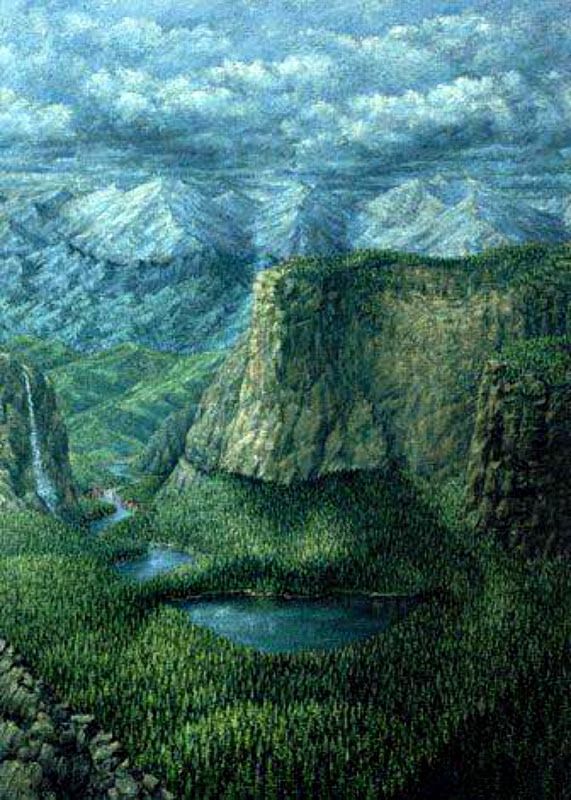 The curious thing is that we seldom apply these insights to our own species — as if humanity might be an exception to the rule, as if we are purposeless visitors in a meaningless world or as if we can take any ecological role we want. But as a species, we, too, have a distinctive niche in the community of life, a particular potential, a role that evolution has shaped us to occupy. Most of us are just not at all sure what that might be. Or perhaps we don’t even consider the question.
The curious thing is that we seldom apply these insights to our own species — as if humanity might be an exception to the rule, as if we are purposeless visitors in a meaningless world or as if we can take any ecological role we want. But as a species, we, too, have a distinctive niche in the community of life, a particular potential, a role that evolution has shaped us to occupy. Most of us are just not at all sure what that might be. Or perhaps we don’t even consider the question.
Given what is unfolding globally in the early twenty-first century, we might be tempted, in moments of despair, to conclude that our unique human niche must be to perpetrate the sixth mass extinction of life on our planet. This is, after all, what we are in fact doing and what is already well underway — the apocalyptic diminution of our planet’s biodiversity, as if Earth is seeking to renew herself by first clearing the decks through the life-slaughtering genius of our own species. Could this be it? Could we have evolved so as to “cooperate best” with the rest of life by becoming the obliging eco-assassin that annihilates most present-day species, including our own? Really?
I don’t think so. I believe that ecocide/suicide is not our destiny but, rather, our fate if we do not succeed at embracing and inhabiting our true niche (leaving aside for now the question of why we might be the only species capable of not fulfilling its true niche). Further, I believe we will not be able to inhabit our true niche as a species unless and until enough of us inhabit our true individual niches.
Let me tell you why:
In order to realize our evolutionary potential, most human cultures have to be healthy and mature enough to choose and support such a mission — “the great work” of our time, as Thomas Berry framed it in his visionary book of that title. In order to have such cultures, there must be humans mature and healthy enough to cocreate those cultures. Such humans (initiated Adults and Elders) are not people who are primarily looking out for themselves (their “small” selves), but rather people who are creatively crafting ways of inhabiting the life-enhancing individual niche they were born for. And that niche is what we discover and what we become able to occupy through the journey of soul initiation. Consequently, in order for humanity to take its true place in the world, enough individual humans must take their true places.
True Adults and Elders are people who know why they were born, who know who they are as unique individual participants in the web of life, and who, in most everything they do, creatively occupy their distinctive ecological niche as a life-enhancing gift to their people and to the greater Earth community.
The primary reason ecocide could end up being our collective fate is due to a specific kind of cultural decay that is the inevitable result of the absence of the journey of soul initiation.
In other words, we industrialized humans are failing to occupy our true collective niche because we don’t know how to find or occupy our individual roles in the greater web of life. We don’t know who we are as a species because we don’t know who we are as individuals.
But we can learn how to remember who we were born to be as individuals, and we can collectively discover who we might yet become as a species.
Twenty-First-Century Practices for Soul Initiation
One factor that makes our work at Animas new, relative to earlier, indigenous traditions, arises from the fact that we are addressing the journey of soul initiation with a very different consciousness and within a very different cultural context. This is simply by “virtue” of several cultural revolutions — agricultural, scientific, industrial, and digital. Humanity now operates with a significantly different mode of consciousness relative to the Neolithic; we exist in a radically transformed cultural context in terms of our knowledge, social structures, economies, technologies, spiritualities, and cosmology.
One of the consequences of these cultural revolutions is a degradation of our shared environment to such a degree that humanity as a whole now faces an unprecedented and ultimate dilemma, namely, accelerating ecocide and possible self-extinction.
We now find ourselves in an initiatory crisis of our own making that will result in either our demise or our metamorphosis. We cannot continue on our current course and we cannot remain as the humans we’ve been. This is a collective circumstance akin to what is faced individually on the Descent to Soul. Not all people or species — or planets — survive their initiations.
Greater role differentiation is true not only of contemporary societies compared with earlier ones but also of our species compared with others. The variety of niches individual humans can occupy seems immeasurably greater than the niches available to individuals of other species. This is our forte as well as our flaw. One of the distinctive attributes of the human psyche is that it takes wildly diverse and creative shapes. But the capacity of most earlier human cultures to support that diversity and autonomy seems limited compared to contemporary options.
More generally, I suspect there are no older or existing cultures with practices or worldviews that are unambiguously relevant to what we need to navigate our current planetary moment, none that are wholly adequate to enable us to face what we now must as a species. This, indeed, was the conclusion of geologian and Earth Elder Thomas Berry after a long life studying cultures all over the world:
We must go far beyond any transformation of contemporary culture….None of our existing cultures can deal with this situation, namely, the loss of what Thomas termed our cultural “survival capacity”] out of its own resources. We must invent, or reinvent, a sustainable human culture by a descent into our prerational, our instinctive resources. Our cultural resources have lost their integrity. They cannot be trusted. What is needed is not transcendence but “inscendence.”
Thomas, by distinguishing inscendence from transcendence, was declaring that we live in a time in which the spiritual descent has become essential — and more vital than the spiritual ascent, which, alone, too often amounts to a spiritual “bypass” of our individual and collective needs for healing, wholing, and tending to our crises and opportunities.
There are additional indicators of an emerging human paradigm that might require a new approach to the journey of soul initiation, a new way to understand the Descent to Soul. These include our modern awareness (astonishingly, in just the last 150 years) of a one-way, nonrepeating evolutionary arc to the unfolding world (not just ever-repeating cycles); the determining role humanity now has in the evolution of life on our planet; the relatively recent universal cultivation of the deep imagination, bestowing every person of every culture with the potential for visionary achievement (not just the rare prophet or shaman); and modern Adolescence as a potential evolutionary advance — as yet unfulfilled.
These perspectives suggest that the journey of soul initiation is itself in the process of evolving, that a new developmental possibility for humanity is emerging, and that our species is in the midst of an initiatory journey. We are entering uncharted waters.
For these reasons, I believe we will not find what we need now by returning to the initiatory practices of earlier cultures. Although we might employ some universal techniques and strategies (like dreamwork, fasting, and trance dance) and embrace certain arts of the older Western mystery schools (like deep-imagery journeys, symbolic artwork, and the Mandorla), we primarily must invent never-before-seen maps and methods to navigate our never-before-seen circumstances and courageously accept a destination we can only partially understand.
It’s not simply that we must not appropriate from or co-opt indigenous traditions. It’s not simply that we must invent our own ways of doing what earlier cultures might have done. More fundamentally, we must envision methods for a journey no previous cultures had even attempted — or were ready for. And we must do this not only to prevent horrific things from happening — like ecocide — but also to enable a human possibility not previously seen in this world.
We must now collectively weave a cocoon for the metamorphosis of our own species.
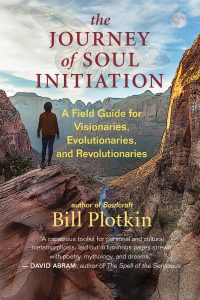
Excerpted from the book from The Journey of Soul Initiation. Copyright ©2021 by Bill Plotkin. Printed with permission from New World Library — www.newworldlibrary.com.


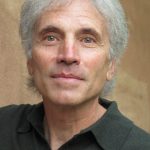
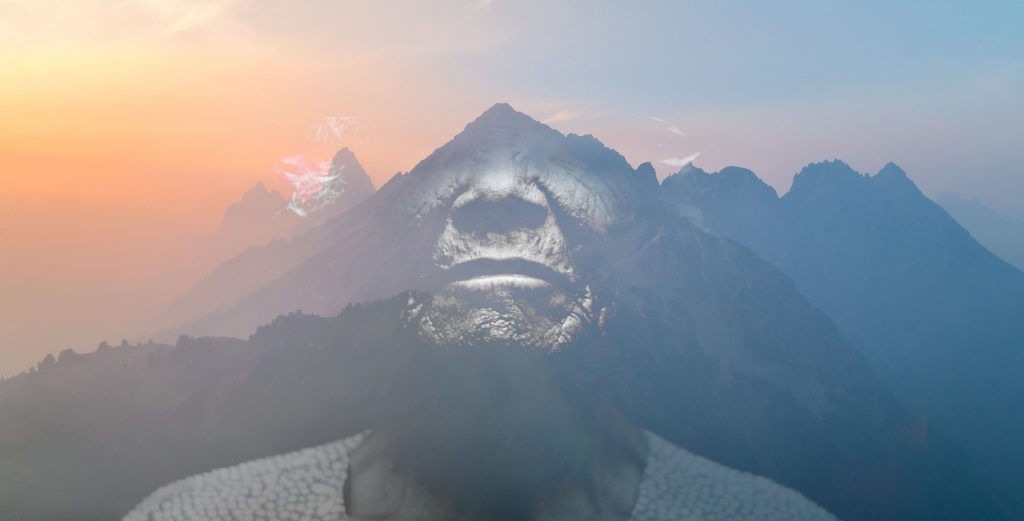

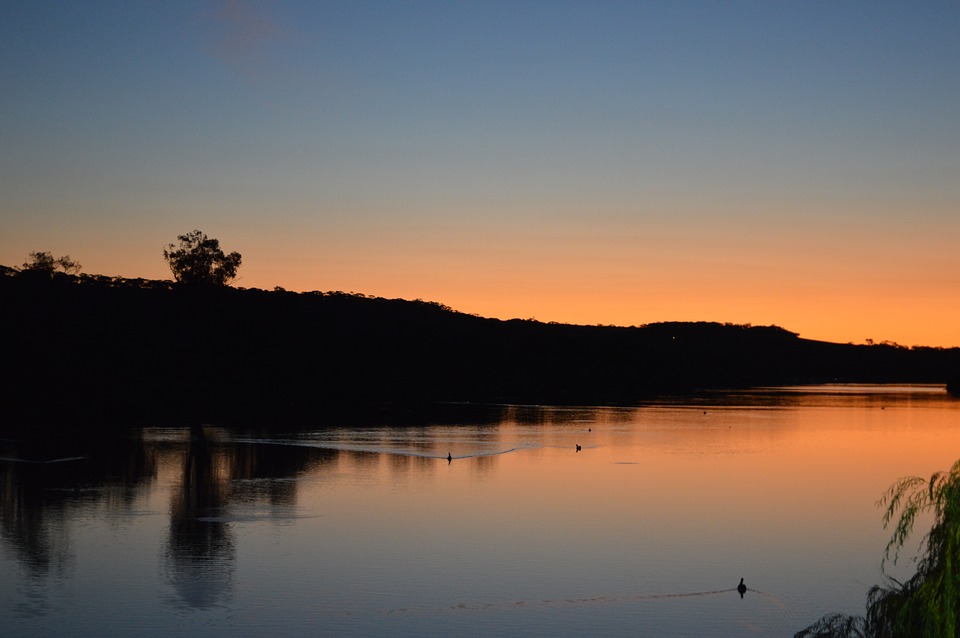
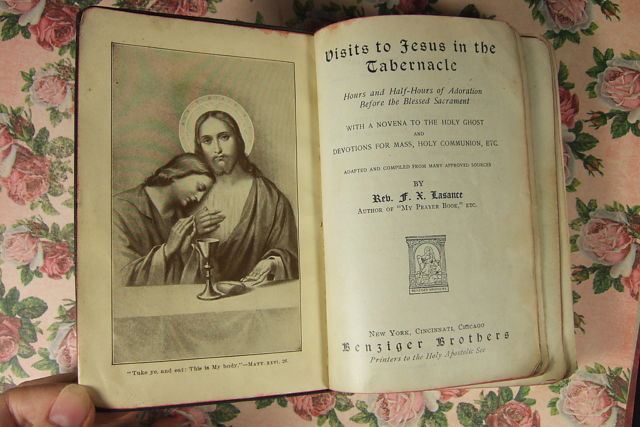
I noticed that the link to Bill’s book The Journey of Soul Initiation was incorrect and led to another book by another author.
The Journey of Soul Initiation was found at;
https://www.amazon.com/Journey-Soul-Initiation-Evolutionaries-Revolutionaries-ebook/dp/B08PHCX7DG/ref=tmm_kin_swatch_0?_encoding=UTF8&qid=1617105925&sr=1-2
Thank you! That has been corrected.